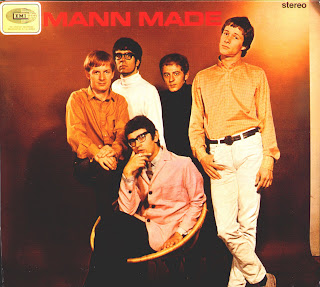

 We Came to Play was the first and only album released by Bux in 1976. The album was originally recorded in 1973 but Capitol decided not to release it. In 1976, however when lead guitarist Punky Meadows and bassist Mickie Jones had success with their band Angel, Capitol tried to cash in and finally released We Came to Play. The album is an interesting affair blending hard rock and the standard
We Came to Play was the first and only album released by Bux in 1976. The album was originally recorded in 1973 but Capitol decided not to release it. In 1976, however when lead guitarist Punky Meadows and bassist Mickie Jones had success with their band Angel, Capitol tried to cash in and finally released We Came to Play. The album is an interesting affair blending hard rock and the standard  boogie band approach with mixed results. White Lightning, which later became a featured cut on Angel's third album, is included here with different lyrics.
boogie band approach with mixed results. White Lightning, which later became a featured cut on Angel's third album, is included here with different lyrics.Angel's first album (1975) was the self-titled Angel and consisted of guitarist Punky Meadows, bassist Mickie Jones, vocalist Frank Dimino, keyboardist Gregg Giuffria, and drummer Barry Brandt. This lineup would hold
 for the following two albums, Helluva Band and On Earth as It Is in Heaven.
for the following two albums, Helluva Band and On Earth as It Is in Heaven.1976's Helluva Band is the second album by Angel. It explores the heavier side of progressive rock and includes their most progressive song, The Fortune.
On Earth As It Is In Heaven is their third album. This marks the last album with Mickie Jones who was Angel's bass player since
 1974. It was produced by Eddie Kramer and recorded in an actual castle in the Hollywood Hills. This album marked the shift from progressive and symphonic hard rock to a more mainstream hard rock approach, with the exception of Cast the First Stone and Just A Dream which are very similar in sound to Angel and Helluva Band. In fact, these two was written during the Helluva Band sessions.
1974. It was produced by Eddie Kramer and recorded in an actual castle in the Hollywood Hills. This album marked the shift from progressive and symphonic hard rock to a more mainstream hard rock approach, with the exception of Cast the First Stone and Just A Dream which are very similar in sound to Angel and Helluva Band. In fact, these two was written during the Helluva Band sessions.  Mickie Jones passed away in San Dimas, CA September 5, 2009 after a long battle with liver cancer.
Mickie Jones passed away in San Dimas, CA September 5, 2009 after a long battle with liver cancer.Giuffria was composed of Gregg Giuffria, David Glen Eisley, Craig Goldy, Chuck Wright, and Alan Krigger. Giuffria's debut album was released in 1984. It's peak position on Billboard was #26 in March, 1985. It was the most successful album from the Giuffria releases.





















.jpg)


